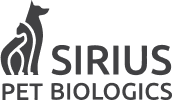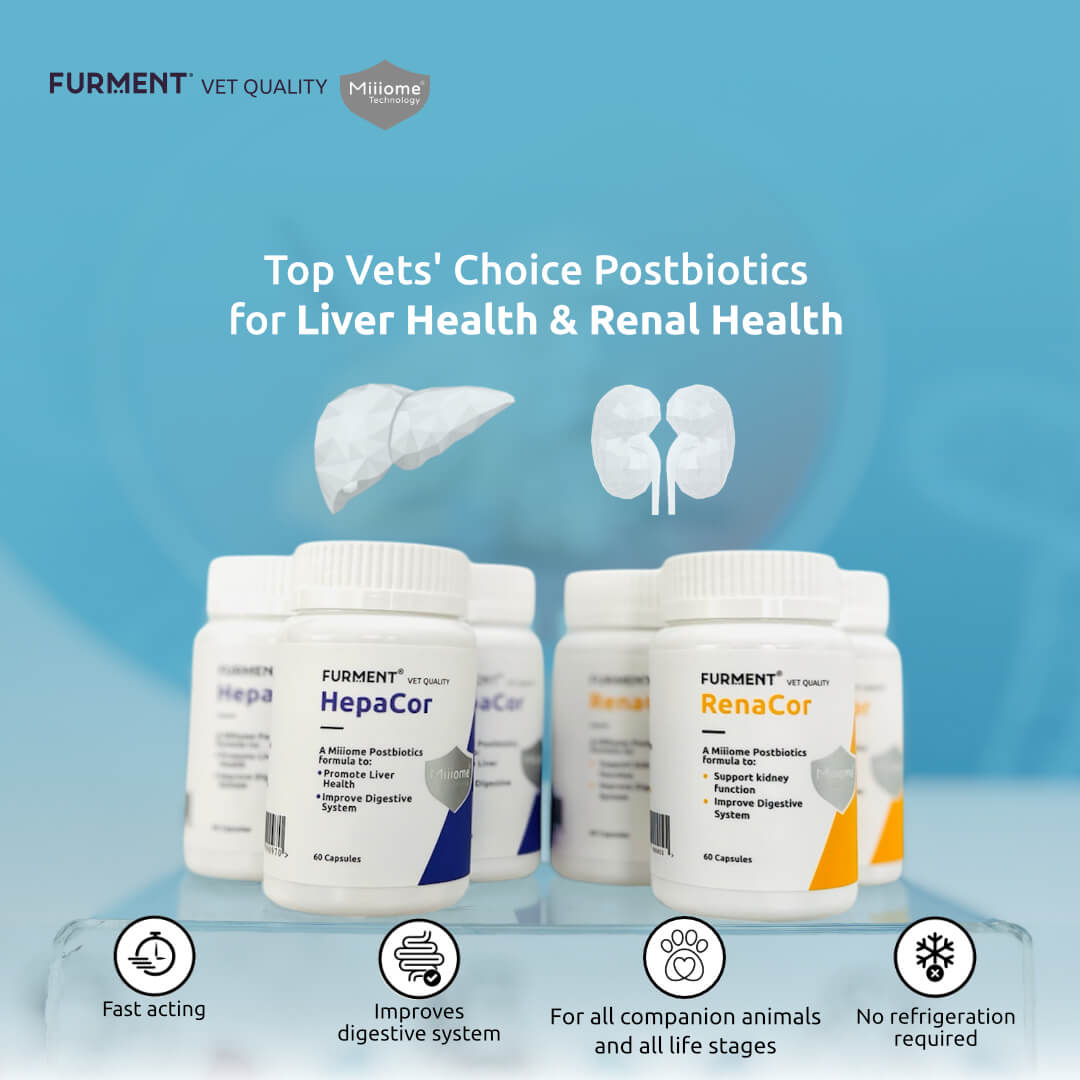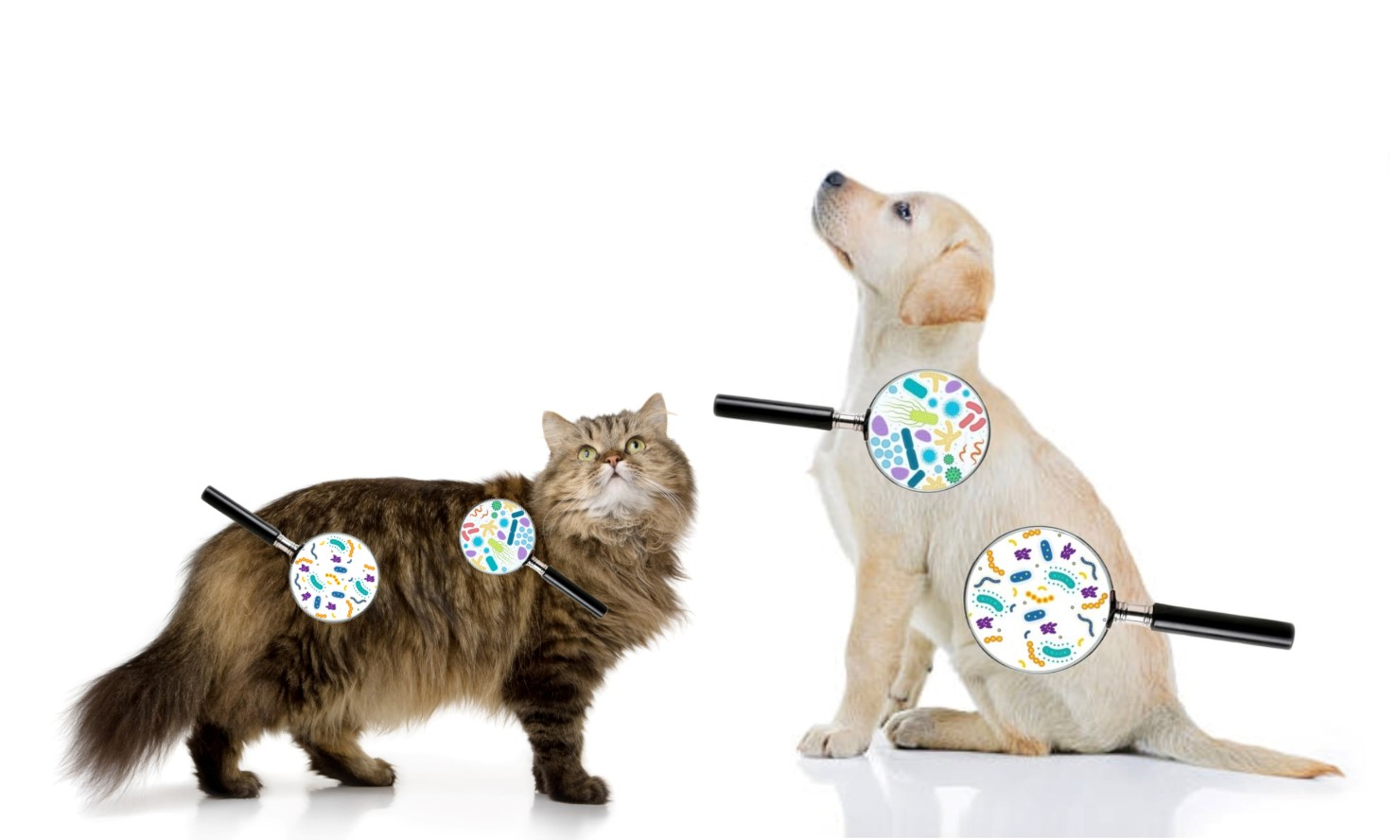
The Microbiome refers to the community of living microorganisms (such as bacteria, viruses, fungi, archaea and protozoa), genetic materials and essential metabolites that occupy a defined habitat, such as the gut or the skin.
It is a functional microbial ecosystem that is fundamentally important to both animal and human health.
The largest and most studied microbiome is the gut microbiome; however the skin, oral cavity, ear canal and other parts, each also has their own microbiome.
What Does The Gut Microbiome Do?
Just like human gut microbiome, the gut of a canine and feline harbours a complex and highly biodiverse microbial ecosystem that is pivotal to health.
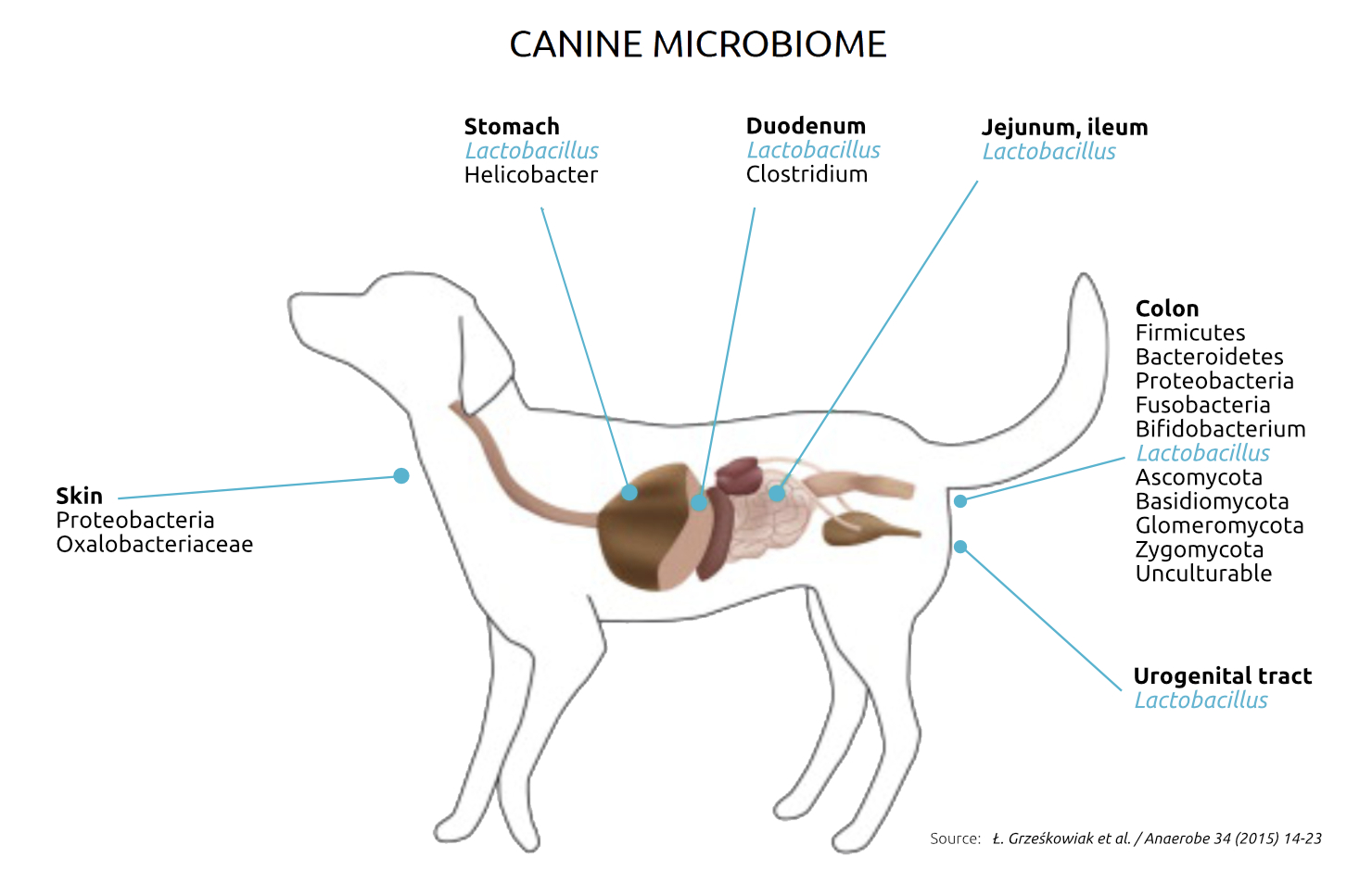
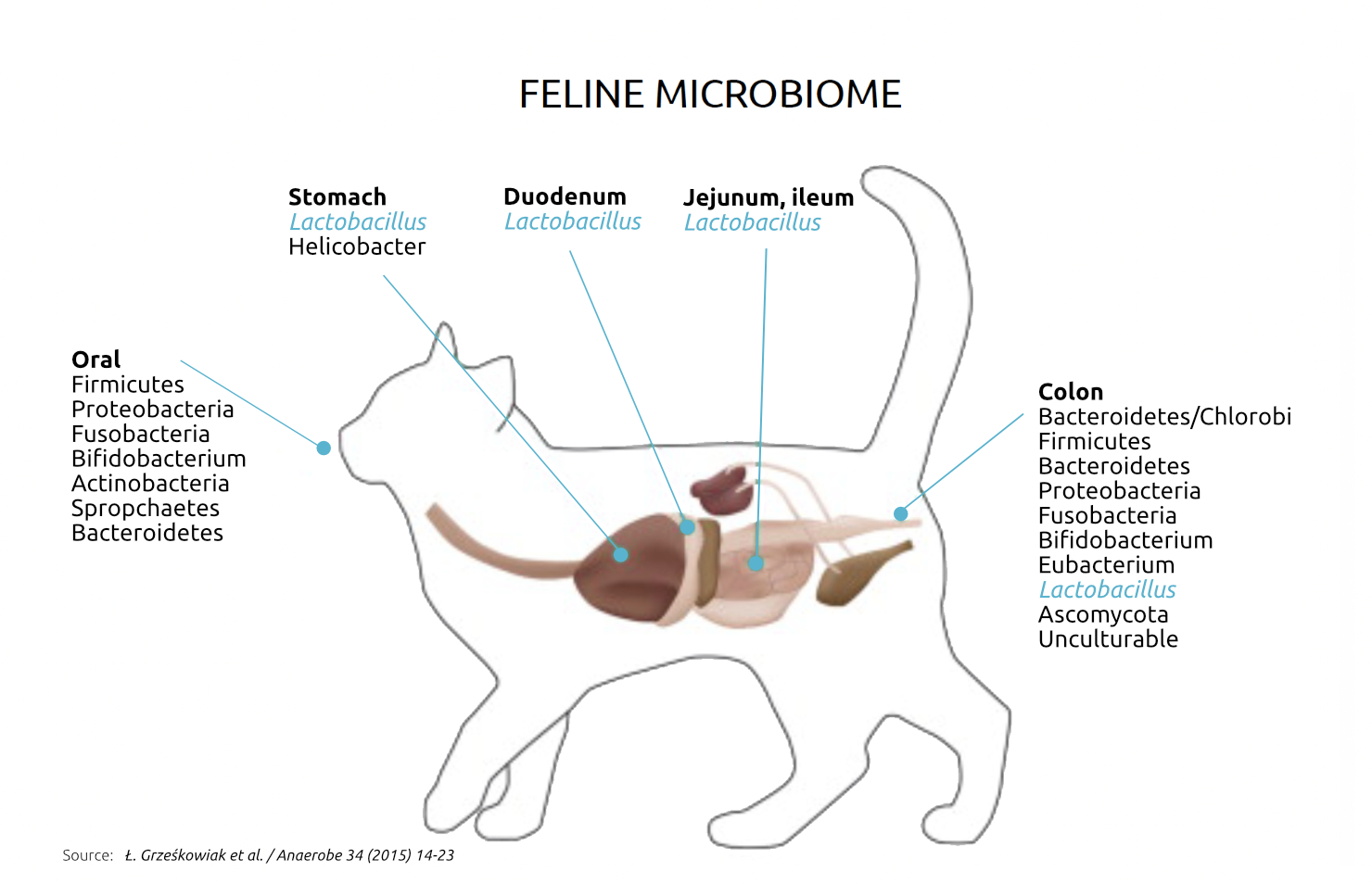
The roles of gut microbiome are as follows1,2:
- Influences the immune system
- Helps in intestinal barrier function
- Protects against pathogens
- Regulates inflammatory response
- Regulates metabolism
- Aids digestion, energy production, vitamins synthesis, and nutrient absorption
- Supports neuro-behavioural development
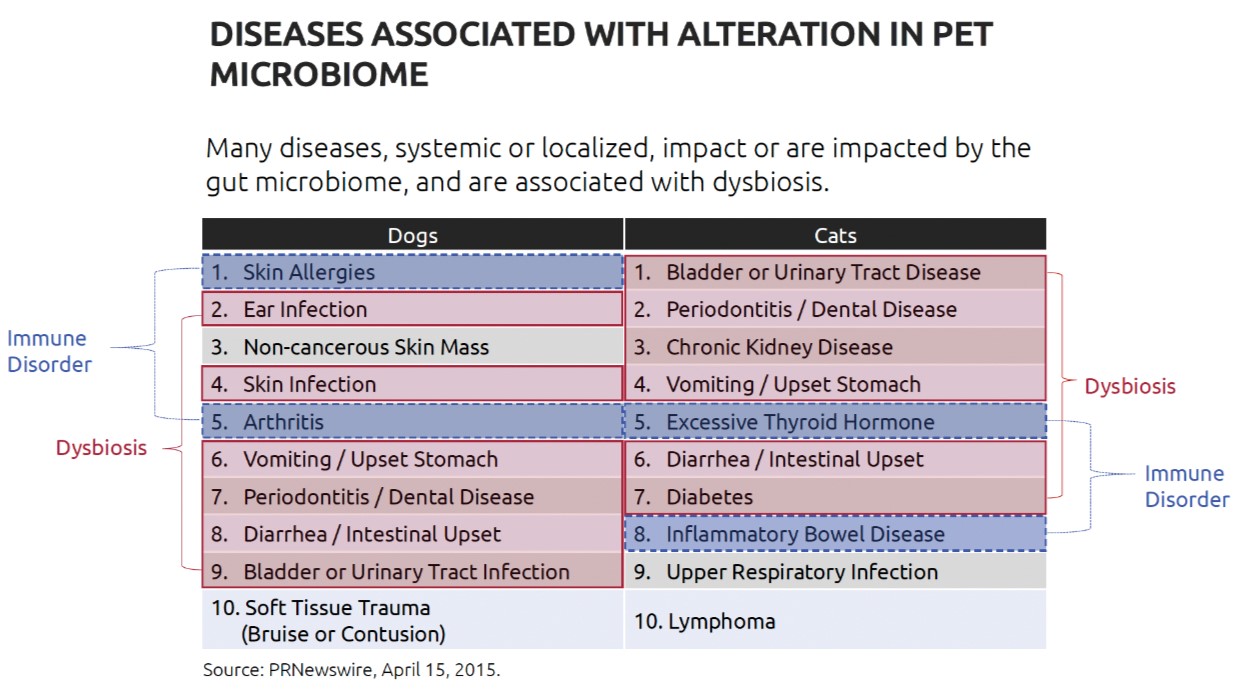
The central role the gut microbiome plays means that profound alterations and imbalances (also known as dysbiosis) result in health deficiencies and other issues, sometimes resulting in more serious effects on one’s quality of life.
Dysbiosis is associated to ailments such as3,4:
- Diarrhoea
- Nausea
- Constipation
- Kidney disease
- Dental disease
- Bladder and urinary tract disease
- Skin infections
- Stress & anxiety
- Cancer
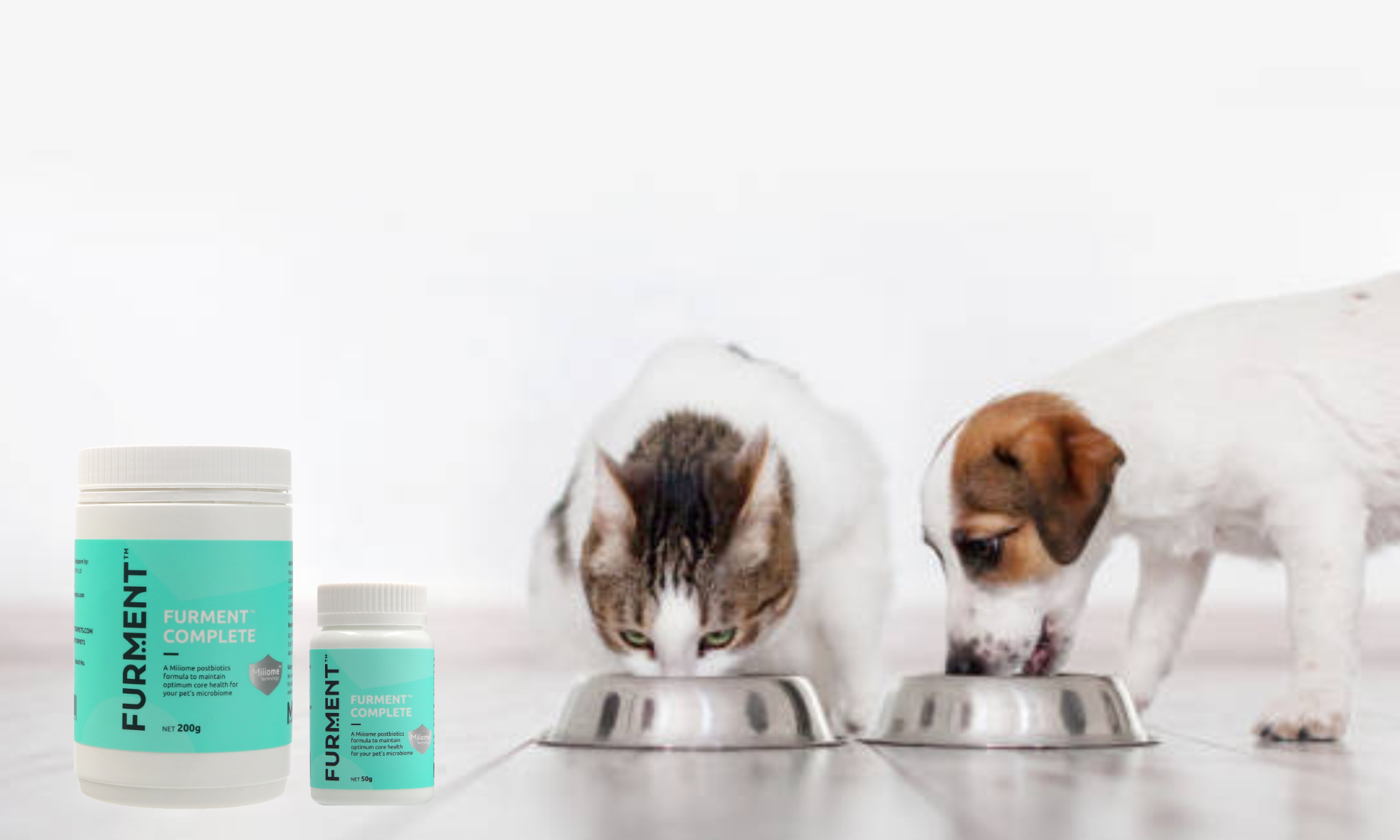
Not surprisingly, the top 10 most common medical conditions for dogs and cats are related to gastrointestinal and skin microbiome issues.5
Dysbiosis can be caused by changes in diet, contaminated food, antibiotics, stress, environmental toxins, and age.
Antibiotics and some long-term medications can cause lasting harm to the microbiome, resulting in a lowered immune system, poor digestive health and further inflammation.
As such, it is important to take steps to maintain a balanced and robust microbiome to ensure the very best life for both ourselves and our pets.
References
- Mondo, Elisabetta, et al. "Role of gut microbiota in dog and cat’s health and diseases." Open Veterinary Journal 9.3 (2019): 253-258.
- Pilla, Rachel, and Jan S. Suchodolski. "The role of the canine gut microbiome and metabolome in health and gastrointestinal disease." Frontiers in veterinary science 6 (2020): 498.
- Blake, Amanda B., and Jan S. Suchodolski. "Importance of gut microbiota for the health and disease of dogs and cats." Animal Frontiers 6.3 (2016): 37-42.
- Barko, P. C., McMichael, M. A., Swanson, K. S., & Williams, D. A. (2018). The gastrointestinal microbiome: a review. Journal of veterinary internal medicine, 32(1), 9-25.
- PR Newswire: Top 10 Most Common Medical Conditions for Dogs and Cats. Apr 15, 2015.
